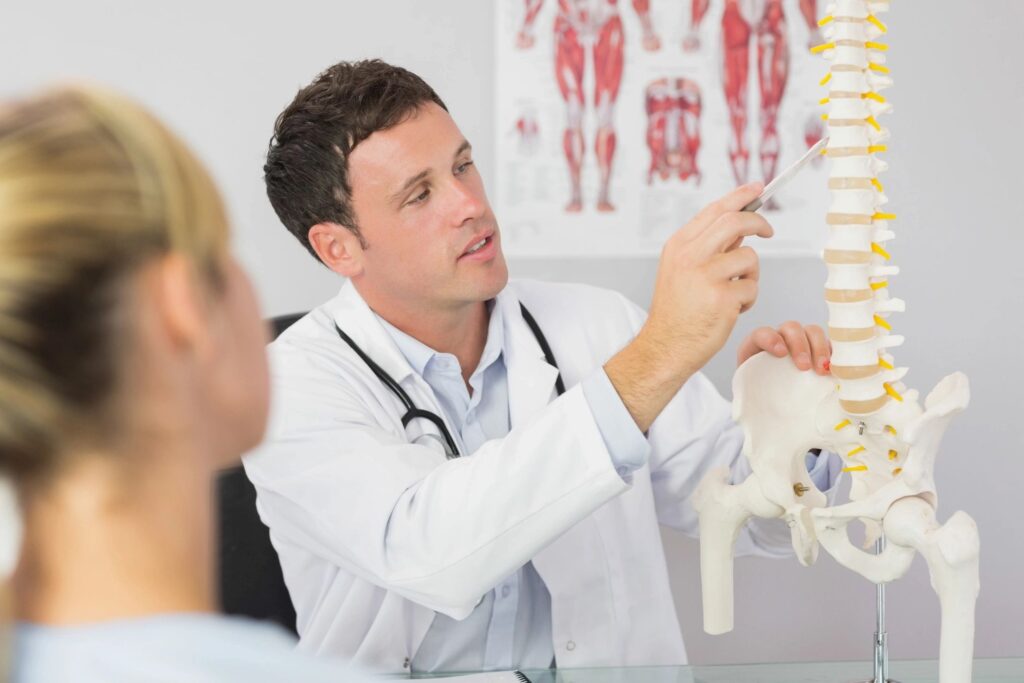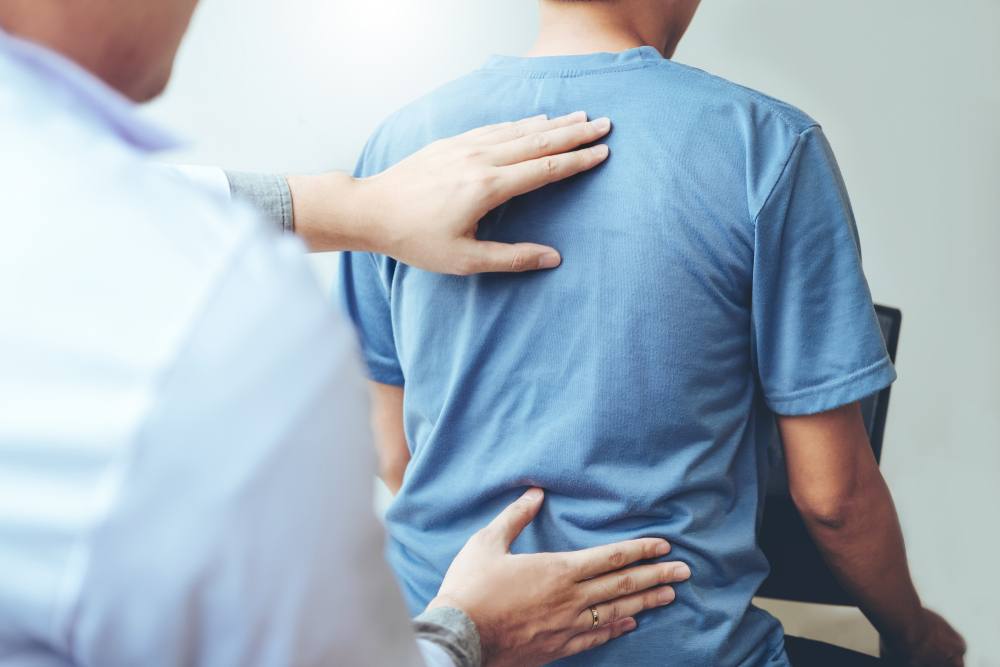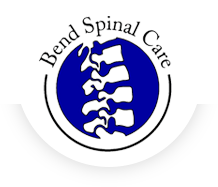Car Accident? Back Pain? What now?
Car accidents are an unfortunate reality for many, and one of the most common repercussions is back pain. This pain can vary from mild discomfort to severe, debilitating pain that significantly impacts your daily life. Understanding the potential causes and what steps to take can significantly affect your recovery process.
Addressing back pain promptly is crucial, as delaying treatment can lead to chronic pain and long-term complications. Understanding the immediate steps to take, the diagnostic tests you might undergo, and the available treatment options can significantly aid your recovery.
Common Causes of Back Pain After a Car Accident
Back pain following a car accident can result from various injuries. Whiplash, often associated with rear-end collisions, can strain or sprain the muscles and ligaments in your neck and back. Herniated discs are another common issue, where the impact causes the discs between your vertebrae to slip or rupture, pressing on nerves and causing pain. More severe accidents can lead to spinal cord injuries, which may have long-term effects on mobility and health.
Immediate Steps to Take If You Experience Back Pain After a Car Accident
If you experience back pain following a car accident, seeking medical attention immediately is essential. Even if the pain seems minor, it’s important to rule out any serious underlying injuries. Early intervention can prevent complications and ensure a smoother recovery. Visiting a car accident clinic, where doctors specialize in treating these specific injuries, is your best option.
Watch out for back pain warning signs such as:
- Severe pain
- Numbness
- Tingling
- Weakness in your limbs
- Difficulty walking
- Loss of bladder or bowel control
These symptoms could indicate serious conditions like nerve damage or spinal cord injury and require immediate medical evaluation.
Keeping a record of your symptoms and any incidents related to the accident can be incredibly helpful during medical consultations. Note down when the pain started, its intensity, and any activities that worsen or relieve it. This information can guide your healthcare provider in making an accurate diagnosis and developing an effective treatment plan.

Diagnostic Tests for Back Pain After a Car Accident
To assess the extent of your back injuries, doctors may recommend several diagnostic tests. These tests help in pinpointing the exact cause of your pain and determining the most appropriate treatment plan.
- X-rays: These are often the first step in diagnosing back pain. X-rays can reveal fractures or dislocations in the spine. They provide a clear picture of the bone structure and help rule out severe injuries.
- MRI (Magnetic Resonance Imaging): MRIs are used to detect soft tissue injuries, including herniated discs, muscle strains, and ligament damage. This test uses strong magnetic fields and radio waves to produce detailed images of your spine and surrounding tissues.
- CT (Computed Tomography) Scans: CT scans combine X-ray images taken from different angles to create a detailed cross-sectional view of the spine. They are particularly useful for detecting bone abnormalities and subtle injuries that X-rays might miss.
These tests are non-invasive and generally safe. They provide critical information that helps your healthcare provider understand the full scope of your injuries and tailor a treatment plan to your specific needs.

Treatment Options for Back Pain Following a Car Accident
Once your diagnosis is clear, your doctor will discuss various treatment options with you. The right treatment plan will depend on the type and severity of your injury.
- Chiropractic Care: Chiropractors specialize in diagnosing and treating neuromusculoskeletal issues. They use hands-on spinal manipulation and other techniques to relieve pain and improve function. Chiropractic care can be particularly effective for treating conditions like whiplash and herniated discs.
- Physical Therapy: This is often the cornerstone of back pain treatment. A physical therapist will guide you through exercises to strengthen your back muscles, improve flexibility, and reduce pain. Consistent therapy can significantly enhance your recovery process.
- Pain Management: Depending on your pain level, your doctor might recommend medications such as muscle relaxants, or pain relievers. In some cases, injections or nerve blocks might be used to control severe pain
- Orthopedic care: This often starts with non-surgical treatments like hot or cold therapy, ultrasound, and electrical stimulation to alleviate pain and reduce inflammation. In some cases, surgical intervention may be necessary, and orthopedic doctors are skilled in performing various procedures to address severe or persistent back pain.
- Surgery: In rare cases where conservative treatments fail, or if there’s significant damage, surgery might be necessary. Procedures can range from minimally invasive techniques to more extensive operations to repair or stabilize the spine.
Combining different treatments can often lead to a more comprehensive healing process. For instance, physical therapy might be combined with pain management and chiropractic care to address different aspects of your injury. Your healthcare provider will help you choose the best approach based on your specific needs and recovery goals.
Car Accident Home Care and Pain Management Tips

Managing back pain at home is crucial for your recovery process. While professional medical care is essential, there are several steps you can take at home to alleviate pain and support your healing. These home care strategies can help manage your symptoms effectively and prevent further injury.
- Ice/Heat Application: Applying ice to the affected area can help reduce inflammation and numb the pain. Use an ice pack for 20 minutes several times a day, especially in the first 48 hours after the injury. After a couple of days, you can switch to heat therapy to relax muscles and increase blood flow to the area.
- Rest: Ensure you get plenty of rest to allow your body to heal. Avoid activities that can strain your back or worsen the pain. However, too much rest can also be detrimental, so balance rest with gentle movement.
- Gentle Exercises: Once the acute pain subsides, gentle exercises and stretches can help maintain flexibility and strengthen the back muscles. Walking, gentle yoga, and specific back stretches can be beneficial.
- Over-the-counter Pain Relief: Non-prescription medications such as acetaminophen can help manage pain. Follow the recommended dosage and consult with a healthcare provider if you have any concerns or underlying health conditions.
- Maintain Healthy Posture and Ergonomics: Be mindful of your posture when sitting, standing, and sleeping. Use supportive chairs, avoid slouching, and consider ergonomic adjustments to your workspace to prevent further strain on your back.
Taking the Next Step in Your Recovery with Bend Spinal Care
Recovering from back pain following a car accident can be challenging, but you don’t have to go through it alone. At Bend Spinal Care, we understand the complexities of back injuries and are committed to providing compassionate, comprehensive care. Our dedicated team of specialists, Dr. Welker and his team, work to heal car accident back pain and injuries.
We start with precise diagnostic tools like MRI and X-rays to accurately diagnose and document your injuries, ensuring you get the right treatment and assisting with any insurance needs. Our personalized treatment plans are designed to meet your unique needs, helping you recover as quickly and completely as possible. With over 24 years of treating car accident victims, you can trust us to guide you through your recovery journey with expertise and care. Reach out to Bend Spinal Care today to receive a comprehensive evaluation and start your path to healing. Call today! (541) 318-8627.
